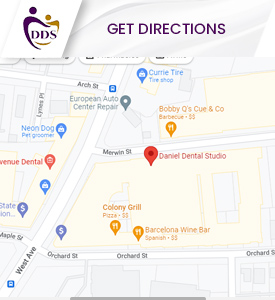What to Expect from a Dental Implants Procedure?
During a dental implant procedure, your dentist will surgically place a titanium post into your jawbone to act as a sturdy foundation for a replacement tooth. Following this, a healing period allows the implant to fuse with the bone, after which a custom-made crown is attached, restoring function and aesthetics. Dr. Karima Daniel at Daniel Dental Studio offers dental implants. Contact us for more information, or request an appointment online today! We are conveniently located at 515 West Ave Suite R, Norwalk CT, 06850.




Additional Services You May Need
▸ Dental Checkup and Cleaning
▸ Dental Crowns and Bridges
▸ Dental Fillings
▸ Dentures
▸ Dental Implants
▸ Pediatric Dentistry
▸ Root Canal Treatment
▸ Tooth Extractions
▸ Clear Aligners
▸ Cosmetic Dentistry
▸ Dental Exams
▸ Dental Sealants
▸ Family Dentistry
▸ Fluoride Treatment
▸ Invisalign
▸ Scaling & Root Planing
▸ Wisdom Teeth Removal



